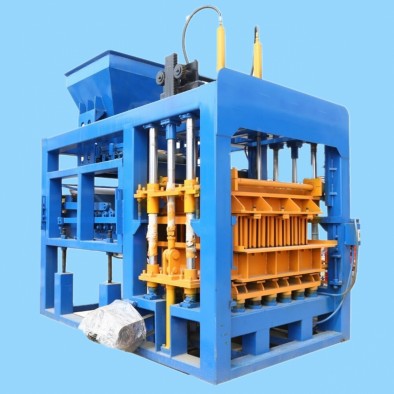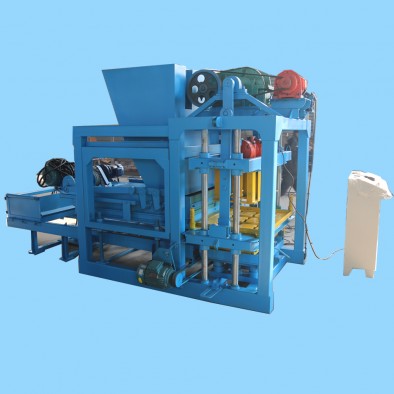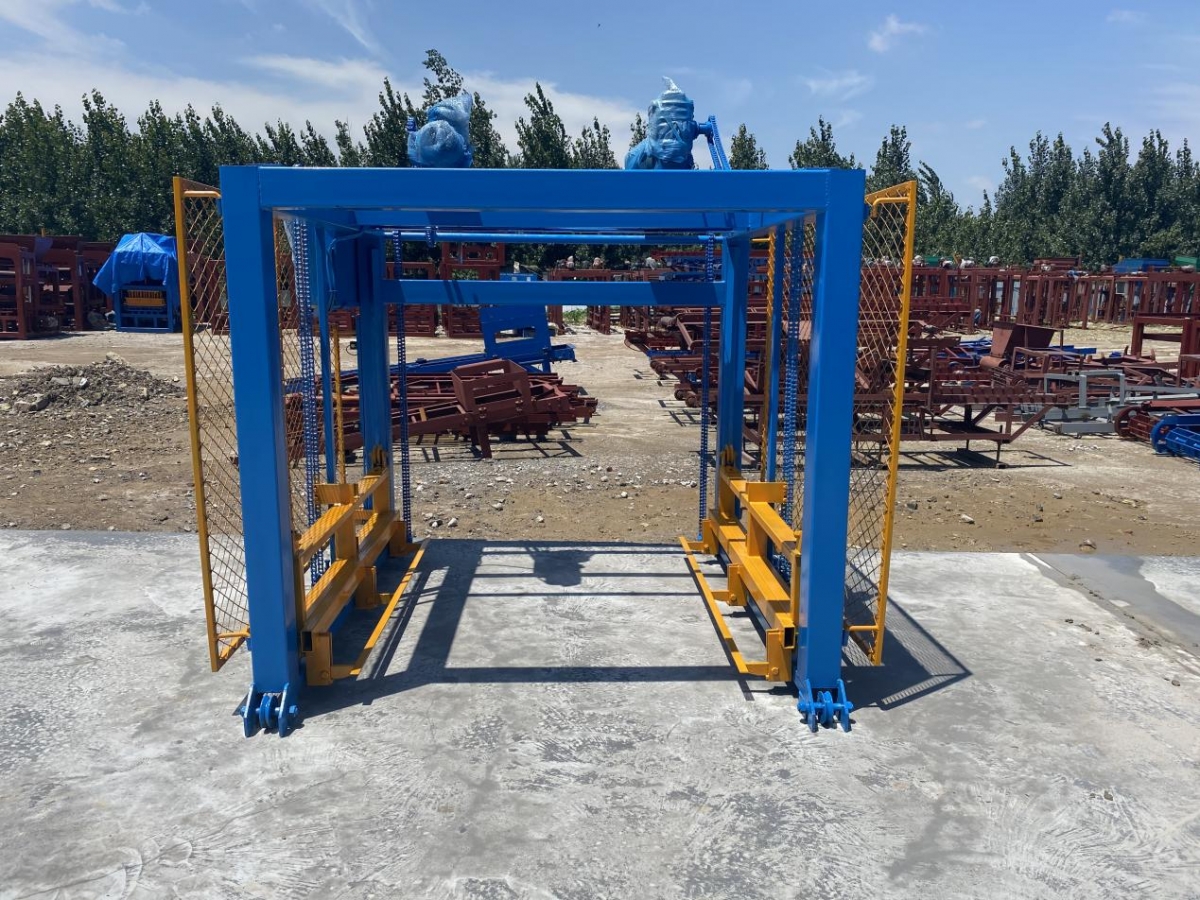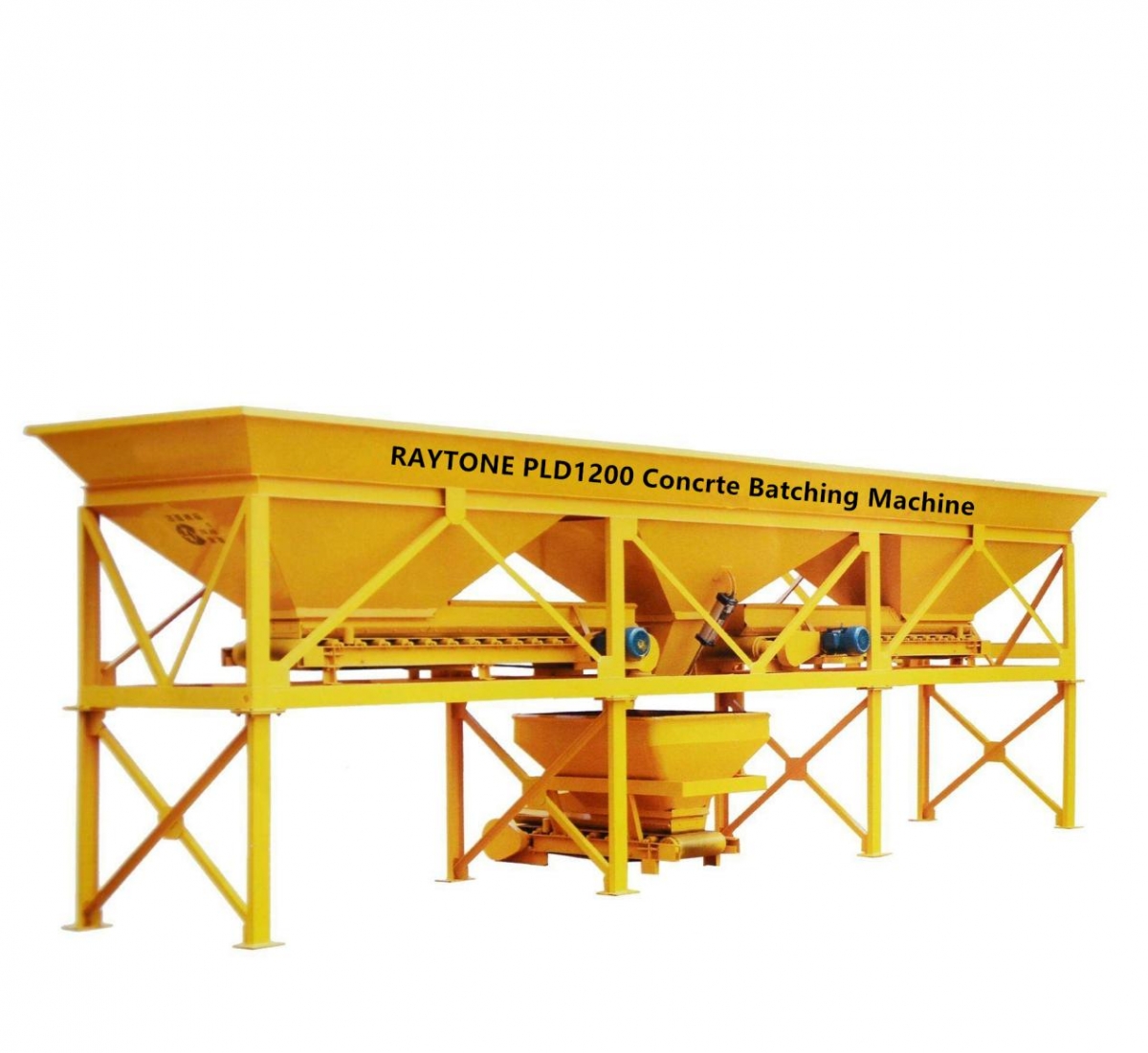- 28
- Feb
What are the different types of block making machines available?
RAYTONE is a leading manufacturer and supplier of block making machines in the construction industry. our company has been dedicated to providing high-quality, innovative and cost-effective solutions for the production of concrete blocks, bricks, and paving stones. As a professional manufacturer, we have a team of skilled engineers, designers and technicians who consistently work towards developing the latest technology and improving our block making machines. With years of experience and expertise, we have designed and produced a wide range of machines to meet the diverse needs of our customers.
Our block making machines are known for their robust construction, high production capacity, and easy handling. We offer a variety of models, including hydraulic, semi-automatic and fully-automatic machines, to cater to different levels of automation and production requirements. Our machines also come with a variety of molds, allowing for flexibility in producing various shapes and sizes of blocks. One of our most popular machines is the BM-1000, which is a fully-automatic block making machine. It has a high production capacity of up to 5,000 blocks per hour and can produce various types of blocks, including hollow, solid, and colored blocks. The machine is equipped with a state-of-the-art hydraulic system, ensuring high efficiency and accuracy in block production.
In addition to block making machines, we also offer a range of auxiliary equipment, such as mixers, crushers, and conveyors, to provide a one-stop solution for our customers’ needs.

At our company, we understand the importance of productivity in any production process. That’s why we have developed a cutting-edge block machine that streamlines your production and optimizes your output. With advanced technology and precision engineering, our machine is able to efficiently and effectively produce high-quality blocks, saving you time and resources. Along with its speed and accuracy, our block machine also offers customizable features to meet your specific production needs. Trust us to maximize your productivity with our state-of-the-art block machine.
Craftsmanship and technology have often been viewed as opposing forces, with one valuing handiwork and the other prioritizing efficiency. However, in our block machine, we have found the perfect balance between the two. Our machine embodies the principles of traditional craftsmanship, utilizing precision engineering and expert manual labor, while also incorporating cutting-edge technology for enhanced productivity and quality control.

Block making machine, also known as brick making machine, is a device that produces concrete blocks or bricks in various shapes and sizes. It plays an important role in the construction industry by providing a cost-effective and efficient solution for producing building materials. With the advancement of technology and the increasing demand for sustainable building materials, block making machines have evolved to become more versatile and eco-friendly. In this article, we will delve deeper into the functionalities and benefits of block making machines and explore how they have revolutionized the way we build structures.
2.Can a block making machine be operated by a single person?
3.How does the block making machine produce a smooth surface on the blocks?
4.What is the process of transporting the blocks from the machine to the curing area?
5.How does the block making machine handle uneven or irregularly shaped raw materials?
6.What is the role of the mold in a block making machine?
7.What are the advantages of using a hydraulic block making machine?
8.Can a block making machine be used for large-scale production?
1.What maintenance is required for a block making machine?
1. Regular Cleaning: The block making machine should be cleaned regularly to remove any dirt, debris, or residue that may accumulate during the production process. This will help to prevent any build-up that could affect the machine’s performance.
2. Lubrication: The moving parts of the machine, such as the bearings, chains, and gears, should be lubricated regularly to ensure smooth operation and prevent wear and tear. It is important to use the recommended lubricants for each specific part.
3. Inspection and Replacement of Worn Parts: The machine should be inspected regularly for any signs of wear and tear. Any worn or damaged parts should be replaced immediately to prevent further damage to the machine.
4. Calibration: The machine should be calibrated regularly to ensure that it is producing blocks of the correct size and shape. This will help to maintain the quality of the blocks and prevent any production issues.
5. Electrical and Mechanical Maintenance: The electrical and mechanical components of the machine should be checked regularly to ensure they are functioning properly. Any faulty components should be repaired or replaced immediately.
6. Training and Education: Proper training and education should be provided to the operators of the machine to ensure they are using it correctly and following all safety protocols. This will help to prevent any accidents or damage to the machine.
7. Storage: When the machine is not in use, it should be stored in a dry and clean environment to prevent rust and corrosion. It is also important to cover the machine to protect it from dust and other contaminants.
8. Regular Servicing: It is recommended to have the machine serviced by a professional at least once a year. This will help to identify any potential issues and ensure the machine is running at its optimal performance.
2.Can a block making machine be operated by a single person?
Yes, a block making machine can be operated by a single person. However, the efficiency and speed of production may be affected compared to having multiple people operating the machine. It also depends on the size and complexity of the machine and the type of blocks being produced. Some machines may require more than one person to operate effectively.
3.How does the block making machine produce a smooth surface on the blocks?
The block making machine uses a combination of pressure and vibration to compact the concrete mixture and create a smooth surface on the blocks. The concrete mixture is poured into a mold and then compressed by a hydraulic press, which applies pressure to the mixture. At the same time, the machine also vibrates the mold, which helps to evenly distribute the concrete and remove any air pockets. This combination of pressure and vibration ensures that the concrete is compacted and the surface of the block is smooth. Additionally, some block making machines also have a troweling mechanism that smooths out the surface of the block before it is released from the mold.
4.What is the process of transporting the blocks from the machine to the curing area?
1. Cutting and shaping: The first step in the process is cutting and shaping the blocks using a block making machine. The machine will produce blocks of the desired size and shape.
2. Loading onto pallets: Once the blocks are ready, they are loaded onto wooden or plastic pallets using a forklift or crane. The number of blocks per pallet will depend on their size and weight.
3. Securing the blocks: The blocks are then secured on the pallets using straps or bands to prevent them from shifting or falling during transportation.
4. Transporting to curing area: The loaded pallets are then transported to the curing area using a forklift or pallet jack. The curing area is usually a covered space with proper ventilation and temperature control to facilitate the curing process.
5. Stacking the pallets: In the curing area, the pallets are stacked on top of each other, leaving enough space between them for air circulation. This allows the blocks to cure evenly.
6. Curing process: The blocks are left to cure for a specific period, depending on the type of block and the curing method used. During this time, the blocks will gain strength and become ready for use.
7. Unloading and storage: Once the blocks have cured, the pallets are unloaded and the blocks are stored in a designated area. They are then ready to be transported to the construction site for use.
8. Reusing pallets: The pallets used for transporting the blocks can be reused for future batches, reducing waste and cost.
9. Cleaning and maintenance: It is important to regularly clean and maintain the block making machine and the curing area to ensure the quality of the blocks and the efficiency of the process.

5.How does the block making machine handle uneven or irregularly shaped raw materials?
The block making machine is designed to handle uneven or irregularly shaped raw materials in the following ways:
1. Adjustable Molds: The molds used in the block making machine can be adjusted to accommodate different sizes and shapes of raw materials. This allows for flexibility in the production process and ensures that the blocks are of uniform size and shape.
2. Vibrating Table: The block making machine is equipped with a vibrating table that helps to settle the raw materials evenly in the mold. This ensures that the blocks have a smooth and even surface, regardless of the shape of the raw materials.
3. Hydraulic Pressure: The block making machine uses hydraulic pressure to compress the raw materials into the desired shape and size. This pressure can be adjusted according to the type and shape of the raw materials, ensuring that the blocks are properly formed.
4. Cutting Mechanism: Some block making machines are equipped with a cutting mechanism that can trim the edges of the blocks to make them more uniform in shape. This is especially useful for irregularly shaped raw materials.
5. Manual Adjustment: In some cases, the operator may need to manually adjust the raw materials to ensure they are properly aligned in the mold. This can be done by hand or with the help of tools provided with the machine.
Overall, the block making machine is designed to handle a variety of raw materials, including uneven or irregularly shaped ones. With its adjustable molds, vibrating table, hydraulic pressure, cutting mechanism, and manual adjustment options, it can produce high-quality blocks regardless of the shape of the raw materials.
6.What is the role of the mold in a block making machine?
The mold in a block making machine is responsible for shaping and forming the concrete or other material into the desired block shape. It is a crucial component of the machine as it determines the size, shape, and texture of the blocks being produced. The mold is designed to be durable and precise, ensuring that each block is consistent in size and shape. It also allows for easy removal of the formed block from the machine. The mold can be customized to produce different types of blocks, such as hollow, solid, or interlocking blocks, depending on the specific needs of the project. Overall, the mold plays a critical role in the block making process, ensuring the production of high-quality and uniform blocks.
7.What are the advantages of using a hydraulic block making machine?
1. High Production Capacity: Hydraulic block making machines have a high production capacity, which means they can produce a large number of blocks in a short period of time. This makes them ideal for large-scale projects.
2. Versatility: These machines can produce a variety of blocks, including hollow blocks, solid blocks, paving blocks, and more. This makes them suitable for a wide range of construction projects.
3. Consistency and Quality: Hydraulic block making machines use hydraulic pressure to compress the raw materials, resulting in consistent and high-quality blocks. This ensures that the blocks are strong and durable, making them suitable for use in construction.
4. Easy to Operate: These machines are designed to be user-friendly and easy to operate. They come with simple controls and require minimal training to operate, making them suitable for both skilled and unskilled workers.
5. Cost-effective: Hydraulic block making machines are cost-effective in the long run. They require minimal maintenance and have a longer lifespan compared to other types of block making machines. This makes them a cost-effective option for businesses.
6. Energy Efficient: These machines use hydraulic power, which is more energy-efficient compared to other types of block making machines. This helps to reduce energy costs and make the production process more environmentally friendly.
7. Customizable: Hydraulic block making machines can be customized to meet specific production requirements. This includes the size, shape, and design of the blocks, allowing for more flexibility in the production process.
8. Durability: These machines are built to withstand heavy use and harsh working conditions. They are made with high-quality materials and components, making them durable and long-lasting.
9. Reduced Labor Costs: With the use of a hydraulic block making machine, the need for manual labor is reduced, resulting in lower labor costs. This also helps to improve the overall efficiency of the production process.
10. Improved Safety: Hydraulic block making machines are designed with safety features to prevent accidents and injuries. This makes them a safer option compared to other types of block making machines.
8.Can a block making machine be used for large-scale production?
Yes, a block making machine can be used for large-scale production. These machines are designed to produce a high volume of blocks in a short amount of time, making them ideal for large-scale production. They are also highly efficient and can produce consistent and high-quality blocks, making them a cost-effective option for large-scale production. Additionally, many block making machines can be customized to meet the specific needs and requirements of a large-scale production operation.

